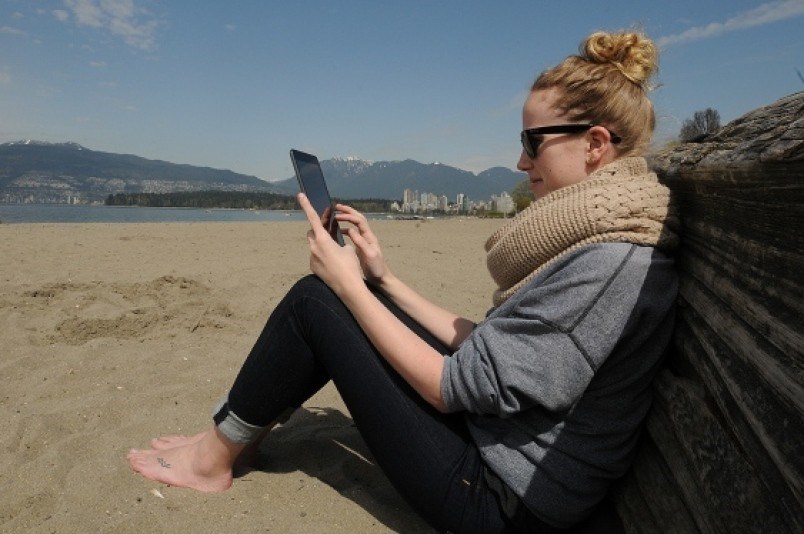There is so much to unpack in Kiana Alai’s piece, “” [published Feb. 9]. This letter won’t cover it all, but I felt compelled to add to what was written about limiting exposure being key.
My sixth-grade daughter started noticing her friends and classmates rocking smartphones this year. That deepened our discussion about when she will be eligible to get one. The reality that she will “need” one to socially and academically survive high school and life beyond it, prompted me to do my homework; I started gathering reliably-sourced articles about the pros and cons of using such a device — going hand-in-hand with social media — and the serious impacts it can have on others and herself with just one click. Because what child solely listens to their parents!? I needed a backup.
She will read these articles, and we will have a conversation. Just like we need to learn the rules of the roads to obtain the privilege to use these shared infrastructures, she should know how to respectfully and safely act in this worldwide online shared space before being granted the right to use it freely.
To thoroughly understand (that’s our key word here) how to be responsible, to have self-control and good judgment — when having access to endless information, good and bad, real and false, funny or distressing, one that can help achieve more social justice and equally do so much damage – is necessary to help raise a generation of kind and thoughtful future adults. The internet is a helpful tool and a dangerous weapon. I would not give her the key to my car before she’d have proven her skills, and I won’t give her a smartphone before she can demonstrate she understands all the above.
I fully agree that youth — and everyone, for that matter — need to limit their exposure to technologies. Look up at the world and people around you rather than down at what’s in your hands. Wait in line ups with your thoughts and breath rather than filling your head with the latest posts, photos or shared links.
Remember how emails were originally supposed to free up more time in our day? (Rolling your eyes too?) Facebook was about connections and has become a distraction. We are losing focus; our attention is spreading thinner with every scroll and swipe. Not to mention that each of these clicks, streams and downloads have an ecological footprint somewhere else, out of sight, out of mind.
To answer Kiana’s question, “How dependent do you think you are on your technology?”
I’d say that I choose to limit and carefully select what I click on, read and look at (I’m sure it’s a bit easier because I don’t have any social media), allowing my brain to process that information and use it wisely. It’s OK to not know everything at every moment and to “miss out” at times — allowing me to make the most of the real life happening around me. Quality over quantity!
Limiting exposure to technology is key indeed. It should be woven with having a genuine understanding of what is right and what is wrong, as well as keeping in mind that we are all real people, despite the keyboard and screen that too often comes between us.
Let’s never forget to have civilized conversations even — especially — when we don’t agree. Treat others the way you want them to treat you. It is that simple!
Marie-ève Boutin
Squamish






